The Infant Wakes to Feed Every 2 Hours Quizlet

Sleep is an integral part of our lives. It has the ability to affect every aspect of our days, including our energy levels and the ability to handle whatever challenges come our way. Even eating patterns, cravings and metabolism can be affected by our sleep patterns and quality of sleep.
As sleep takes up approximately one-third of your life — or at least it should — sleep quality can literally make or break the other two-thirds. Getting consistent restful sleep should be at the top of everyone's priority list. Start with these helpful tips to get you on the right track for improving your sleep.
Get Some Exercise
One of the best cures for sleep problems is exercise. This is true for many reasons, the simplest being when you're more active during the day, it's much easier for your body to know when to shut down at night. It also reduces anxiety, which can prevent you from falling asleep.

Any exercise, even a 10-minute walk, can benefit your body. The longer you keep up the exercise habit, the more benefits you will see. Try to exercise earlier in the day or at least three to four hours before bedtime.
Stress can wreak havoc on your entire life, and your sleep is not immune to the chaos. It can prevent you from falling asleep and inhibit your ability to stay asleep and sleep restfully. Although it may be impossible to completely avoid stress, reducing your stress level as much as possible can make a big difference in your sleep quality.

Start by determining what stress you have in your life. Make a conscious choice to get away from it, change it or deal with it as best you can. Also, exercises like yoga can help reduce stress while providing the added benefit of exercise.
Avoid Caffeine in the Evening
Caffeine is excellent when you wake up, and your brain isn't functioning yet. It's not a good sleep mate, however. It stimulates your nervous system, and you do not need a stimulated nervous system when you're trying to sleep.

Unfortunately, caffeine can stay in your body for up to 8 hours. Depending on your bedtime, that could mean you need to cut the caffeine as early as 3 p.m. If it's the warmth or the flavor of coffee you crave, don't get stressed about it. You can always switch to decaf halfway through your day.
Make Natural Light Your Friend
Artificial light can negatively impact your health and your quality of sleep. Expose yourself to natural light as much as you can during the day. If you work in an office with no windows close to your desk, try to find some spots with natural light on your breaks.

You might consider taking a walk outside during your lunch break, for example. If it's simply not possible, then find a lamp or bulbs that are as close to natural light as possible. This will still provide some of the health and mental benefits of light, although natural light is always best.
Eat Early in the Evening
It's never a good idea to eat too close to bedtime, especially not full meals. Your body needs time to digest the food you consume. If that doesn't happen, then your body may feel very uncomfortable while you're trying to fall asleep.

Try to finish any meals at least a few hours before you get ready for bed. If you need a snack, that's fine. Just don't eat anything big or heavy right before you try to sleep. Stop as soon as your hunger is satisfied, as opposed to automatically eating a full snack.
Wake Up at the Same Time Every Day
Having a consistent wake-up time and bedtime can go a long way to improving your sleep. Determine what time you need to rise every morning to have plenty of time to get ready for your day. Then, count back 8 hours to determine the time you need to go to sleep.

Start preparing for bed earlier than that time to give your body a chance to unwind. Wake up at the same time every day, even when you don't need to get up that early, so your body can maintain a consistent sleep schedule.
Avoid Alcohol
Alcohol has a tendency to make people sleepy, although drowsy may be a better word for it. As a result, many people think that alcohol is the perfect sleep aid, but that's not actually true. Although it can help you fall asleep, it won't help you stay asleep.

In fact, as alcohol reduces the amount of melatonin the body produces, you are more likely to nap when you drink instead of actually sleeping appropriately. When you do fall asleep, you will most likely snore and have other sleep-disrupting problems.
Get a Good Mattress
Many people underestimate the importance of a good mattress, especially when they see those outrageously high price tags. Although it may seem crazy to spend hundreds — probably even thousands — on a good bed, people often change their minds when they feel the difference that one can make in their lives.
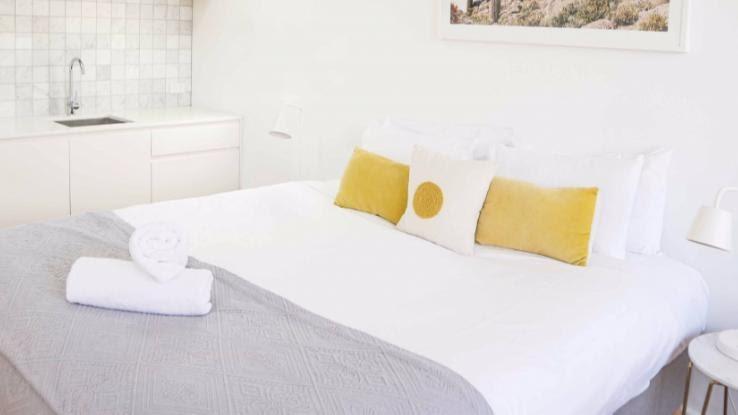
A quality mattress can help you fall asleep quicker, rest better and wake refreshed and without pain. Look for a mattress that conforms to your body as opposed to your body having to conform to it. Mattresses with either memory foam or interlocking coils are good options.
Keep Naps Short
Taking a break during the day is good for mental cognition. Even napping when you feel too tired to go on can be incredibly beneficial for your body and mind. However, taking long naps during the day can negatively impact your sleep at night.
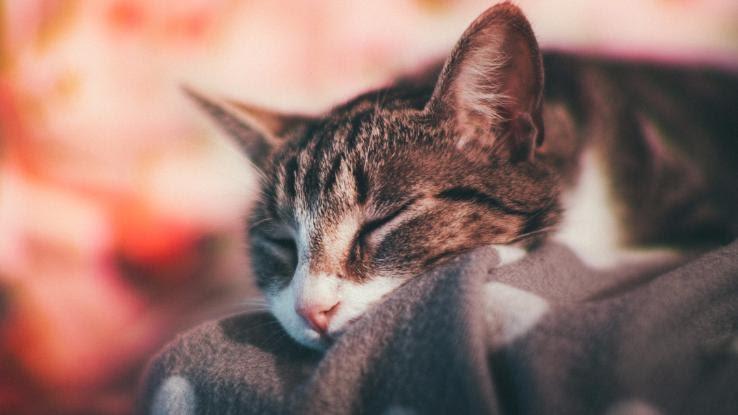
Some people can nap during the day and still have no trouble falling asleep at night. If you do have a hard time sleeping at night after taking naps, try reducing naptime to between 30 and 90 minutes. Also, try not to take naps after 3 p.m.
Mind Your Bedroom Temp
It's important to maintain a comfortable temperature to optimize your ability to fall asleep and stay asleep. If it's too warm or too cold in your room, it will be difficult to sleep. Additionally, it can cause you to have restless sleep, which is as bad as getting no sleep at all.
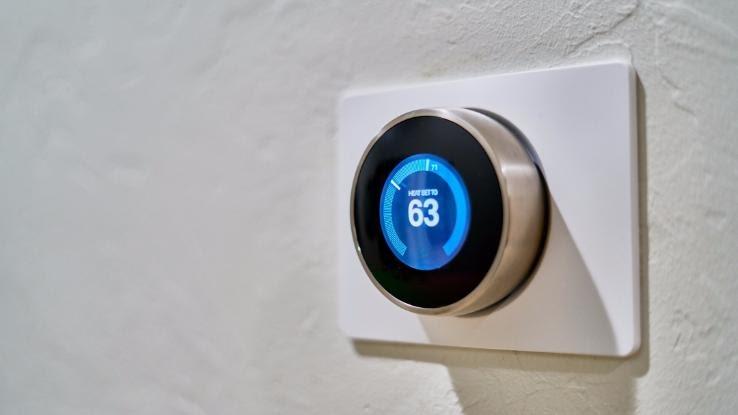
Everyone has their favorite temperature setting, but most people find their optimal sleeping temp to be somewhere between 68 degrees and 72 degrees. Try adjusting the temperature for a few nights until you find what works best for you.
Clear Your Mind
It's incredibly difficult to fall asleep when your mind is a runaway train of thoughts. Trying to drift off to dreamland while your brain is going through your grocery list or the details for tomorrow's meeting isn't going to work.

One of the best things you can do is keep a notepad and a journal beside your bed. Before you lie down, write down anything that's on your mind. If you wake up in the middle of the night with an important thought, write it down quickly and then go right back to sleep.
Create a Bedtime Routine
Bedtime routines can help you unwind for the day, and they signal your mind and body that it's time to chill out. Just be sure that the last hour or so before bed is full of low-key activities, such as a warm bath and soothing lotion.

Also, write out your to-do list for the next day during your bedtime routine to help clear your mind. Laying out your clothes for the next day before you go to bed can help too, so you won't find yourself worrying about it while you're trying to go to sleep.
Establish a Daily and Weekly Routine
Routines are more than a simple list of things to do. They make your days go smoother and keep unmade decisions from cluttering up your mind. If you know that every Thursday you go grocery shopping, you might make Wednesday your menu planning day for making your grocery list.
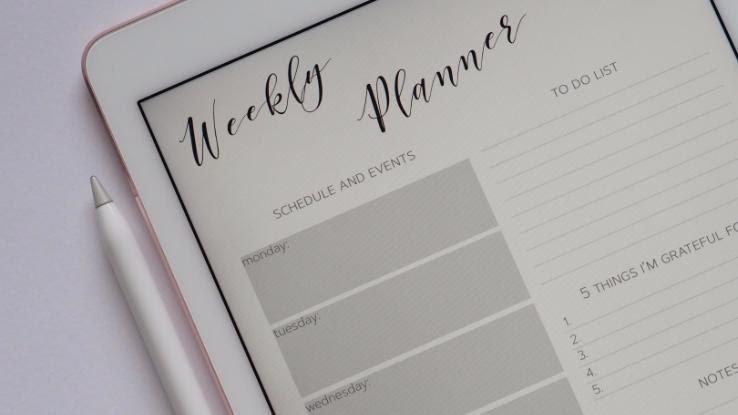
If this is your routine, you don't have to lie awake, reminding yourself to make a list or wondering when you will go shopping. Establish a daily and weekly routine for your sanity as well as for the benefit of falling asleep without distractions.
Try Some Melatonin
When you have trouble going to sleep, no matter what else you try, consider taking melatonin. The body naturally produces this hormone in the right quantities and at the right time when it's working correctly, but sometimes our bodies get out of whack. Taking melatonin can boost this hormone and help you sleep more restfully.
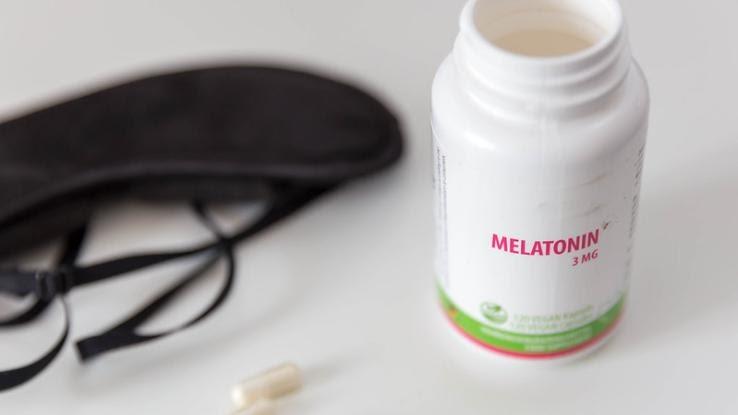
One of the great things about melatonin is that unlike many sleeping pills, it doesn't completely knock you out. It lulls you into a gentle sleep that you can easily wake from if an emergency occurs in the middle of the night or you have children who might need you.
Work with Your Body's Natural Rhythms
Our bodies come with a natural, internal clock that is known as the circadian rhythm. It's what tells your body that it's time to wake up or go to sleep. Problems occur when your circadian rhythm gets knocked off balance, and it can happen for a number of reasons.
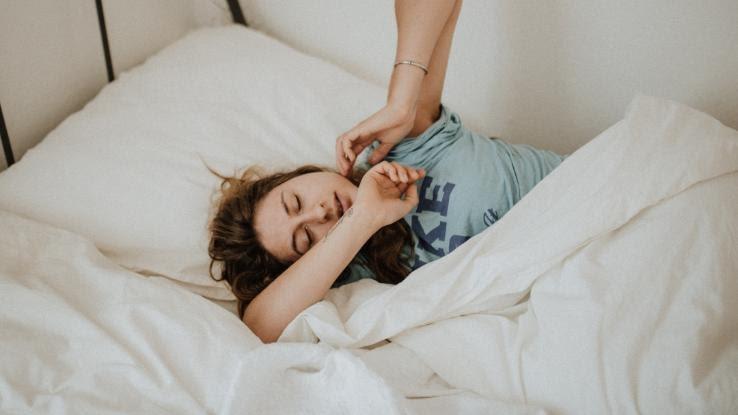
Suddenly, your brain is telling your body to produce melatonin — the sleep-inducing hormone, remember? — during the day. If this happens to you, start by resetting your body to its natural rhythms. Once your body knows that it's night and you need to sleep, it will become much easier to make it happen.
Try Some Nighttime Yoga
Yoga is excellent for your health at any time of the day, but bedtime yoga is a great way to relax for sleep. The stretching and breathing involved in yoga get your body into such a state of calm that you may even consider sleeping on your yoga mat.

If you aren't familiar with yoga or you're simply not sure what is good for nighttime, plenty of videos are available on YouTube. Be sure to type in "bedtime yoga" or "nighttime yoga" to get clips with the relaxing exercises instead of the heart-pumping workouts.
Spend More Time Outside During the Day
It's important to be exposed to bright light during the day. As previously discussed, our bodies have natural rhythms, and light affects those rhythms. If you want to reset them, spending time outside during the day is a great way to start.

By going outdoors when the sun is out, you take in vitamins and nutrients from the sun, which will improve your energy levels. The fresh air does the body good as well. At the very least, keep your curtains or blinds open during the day to reap some of the benefits the entire time the sun is up.
Dim the Interior Lights
Following the same rule, once the sun goes down, try dimming the lights in your home. This will reset your natural cycle as well as act as a signal to your body that it's time to wind down. Your body and mind should start relaxing quickly after getting away from bright lights.

If you have work or school work to do, don't turn the lights down to the point of straining your eyes. Instead, set a timer for when you need to stop working, and then dim the lights.
Protect the Sanctity of Your Bedroom
When your room is full of clutter and chaos, your mind won't be able to rest as it should. It's very important to keep everything you can out of your bedroom that doesn't involve sleep and romance.
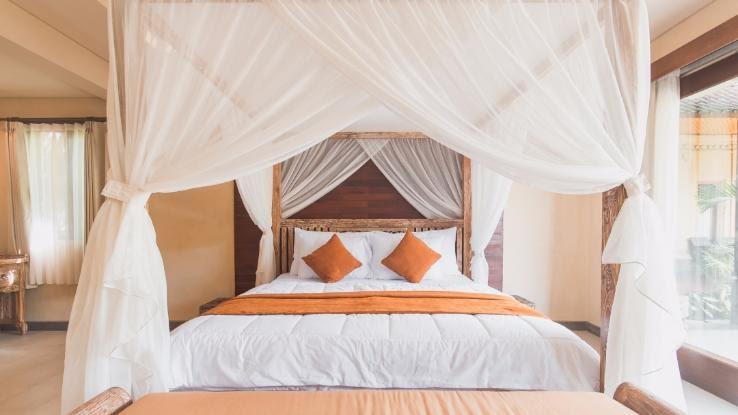
This is hard for people whose bedroom doubles as a home office. If that is a necessity in your home, at least try to keep your office out of view of the bed. You can do this either by moving it to another spot in your room or putting up a partition.
Stay Away from Blue Light
Blue light signals daytime hours for your brain, so when you see blue light, it wakes you up. This causes problems for many people, because they are surrounded by blue light emanating from their computers, tablets and smartphones. The good news is you can get around this problem.

Multiple apps can block the blue light on your devices. You could also consider purchasing glasses that do the same thing. It's also best to turn off the TV and put away the devices at least a couple of hours before bedtime. Instead, spend some quality time with your family.
Keep the Room Dark for Sleep
Lights are not really conducive to a restful environment, so the darker you can keep your bedroom, the better. For those who work at night and sleep during the day — or simply need to keep a light on — there are some other very effective options.
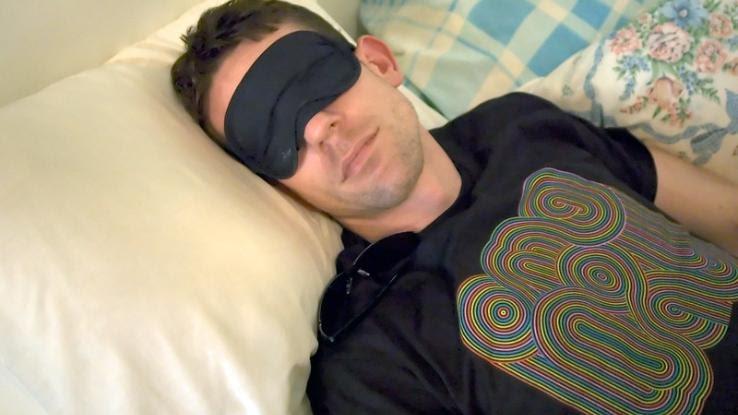
Sleep masks are very helpful for blocking out light while you sleep. Another option is to buy blackout curtains, which block out the sun entirely. Regardless of which option you try, aim for the darkest sleep environment you can possibly imagine.
Skip the Scary Movies
Always skip scary movies right before bed. Even if you're a horror film fanatic and nothing scares you, you should end the scary movies a few hours before you try to sleep. This is simply due to the natural way the body works. Scary, action-packed movies get your adrenaline pumping and your heart racing.

Neither of those things will allow you to relax enough to sleep well. If you watch something scary before bed, try to do some calming exercises afterward. There is no guarantee that they will keep the movie off your mind and restore your blood pressure, but it's worth a shot.
Eat the Right Bedtime Snack
Many foods can keep you from getting a good night's sleep if you eat them too close to bedtime, but some can actually help. If you need a bedtime snack, remember to be strategic about it. For instance, eating heavily processed foods and those full of sugar isn't conducive to creating a restful environment.

Instead, choose something that is easily digestible and healthy. Some common suggestions include half of a turkey sandwich, a cup of yogurt, bananas or a small bowl of whole grain cereal, like Cheerios and milk.
Keep Your Phone Out of Bed
You already know that blue light emitted by your devices can stimulate your brain, but there are also other reasons to keep devices out of your bed. First, it's far too easy to go down a rabbit hole with social media, so you could breeze right past your bedtime without even realizing it.

Second, allowing things such as cell phones and tablets in your bed sends your brain the message that it's okay to work in your bed. That could lead to subconscious interference in your body's ability to recognize that it's time to sleep when you crawl in bed. Your bedroom, especially the bed, should be used for only sleep and romance.
Try a Sleep-Promoting App
People say there's an app for everything, and that could come in handy when you have trouble sleeping. Some apps play music with sound waves that put you to sleep, some tell stories, and others lull you to sleep through a process similar to hypnosis.
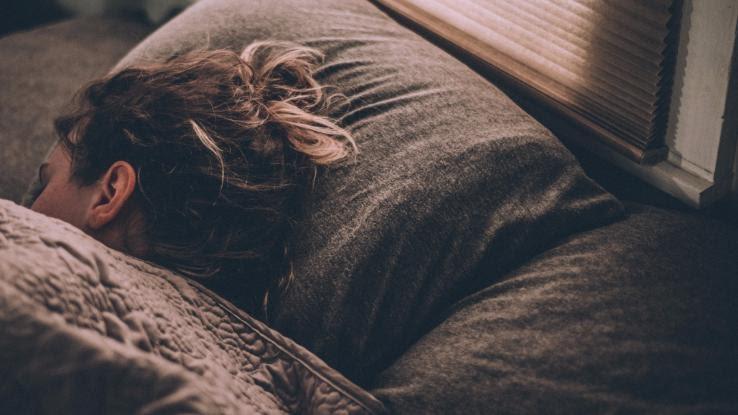
Take a look at the Android and iPhone app stores, depending on your device. It may take some trial and error, but you can probably find one that works well for you. Of course, be sure to cover your phone so the light (if any) doesn't interfere with your sleep.
Learn Relaxation Techniques
When you focus on falling asleep, you may find that sleep becomes aggressively elusive. As with other things, when you can't stop thinking about it, your brain continues to stay active. Instead, focus on relaxing. There are many calming activities on this list, but here's a new one to try: progressive relaxation.
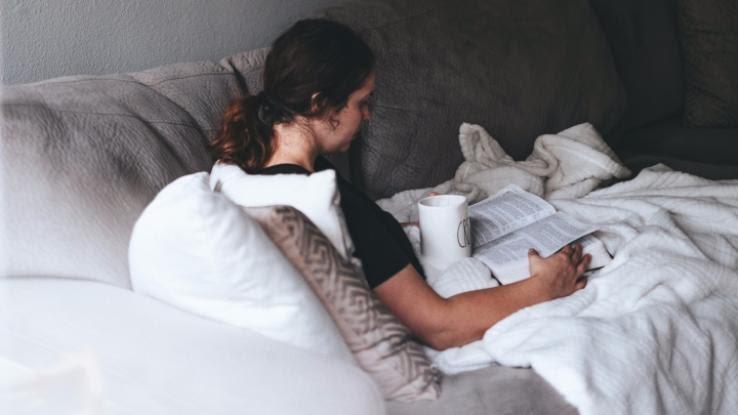
Little by little, tighten and then let go of each muscle group. By the time you work from your head down to your toes, you should be incredibly relaxed. If not, simply start again, working from bottom to top but moving more slowly this time.
Choose the Right Pillow
Having a good pillow is as crucial as having a good mattress. A low-quality pillow can cause cramps and pain in the neck and shoulder muscles, making for an uncomfortable night of sleep. To do its job well, your pillow needs to conform to your head, neck and shoulders.
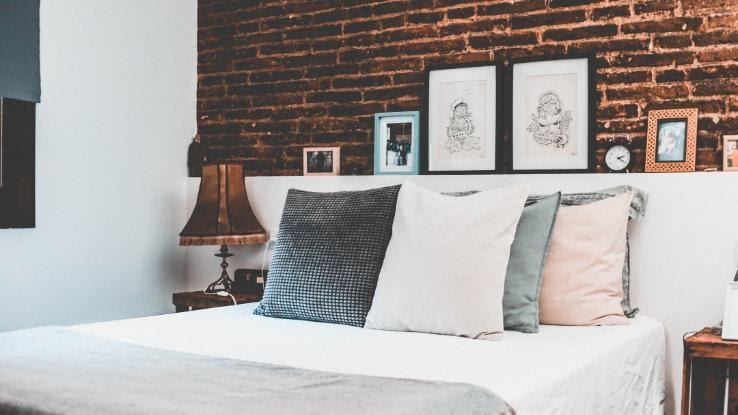
Depending on whether you're a side sleeper, back sleeper or stomach sleeper, you can find a specialized pillow for that position. When you're purchasing your pillow and mattress, look for a weighted blanket, as well, which gives the user an added sense of security when sleeping.
Drink Some Warm Milk or Chamomile Tea
If you need extra help winding down for the day, try drinking warm milk or a cup of chamomile tea. Either of these warm soothers can help the body and mind relax and get you ready for a peaceful night's rest. If you have neither on hand, almost any type of warm drink can help.

No matter what you choose to drink before bed, be sure you don't drink too much. It's no fun to be warm, relaxed and finally sleeping, only to be rudely awakened by a full bladder.
Get Healthy
Good health can benefit many parts of your life, including sleep. When your body is healthy, it works the way nature intended. Being healthy refers to physical, dental, mental, emotional and anything else in between that may affect your body and actions.

Strive to be as healthy as you can by not only eating well and exercising, but also brushing your teeth twice a day, taking a multivitamin, journaling and seeking therapy if you need it. The healthier you are, the longer you can enjoy a restful sleep.
Seek Professional Help
Sometimes, no matter how much you try, you cannot get to sleep. While your environment can play a huge role in how well you sleep, so can chemical imbalances. Something like anxiety or other mental health factors may be the culprit that is keeping you from a good night's sleep.

If you have tried everything on this list and nothing helps, it may be time to see a professional. They can often pinpoint anything mental that is affecting your sleep and help you find a way to fix the problem.
Source: https://www.smarter.com/so-smart/tips-sleep-like-baby-wake-up-rested?utm_content=params%3Ao%3D740011%26ad%3DdirN%26qo%3DserpIndex&ueid=bbfc0f6c-1dd6-4601-94c5-b0a744762737
0 Response to "The Infant Wakes to Feed Every 2 Hours Quizlet"
Postar um comentário